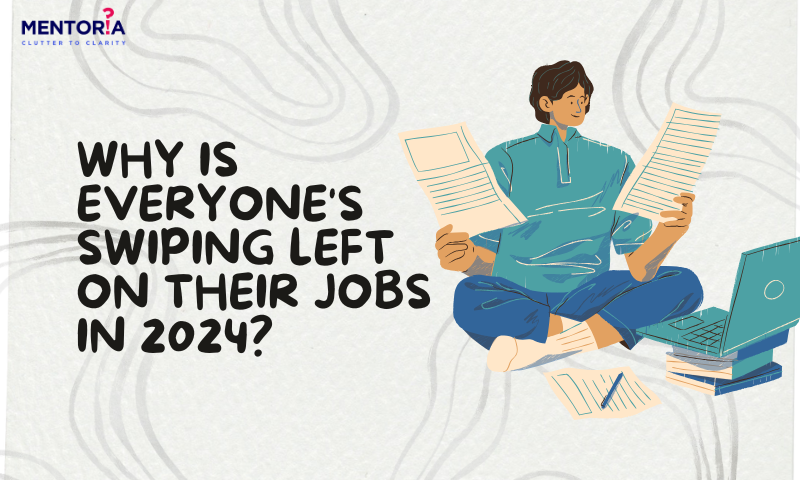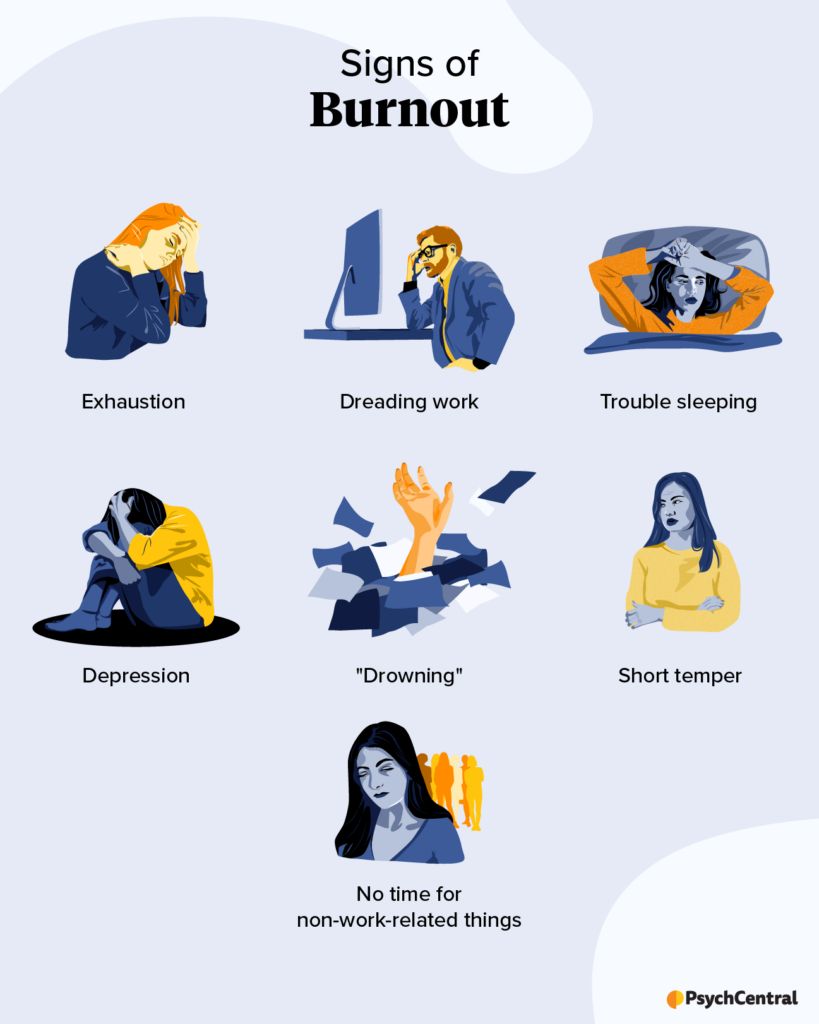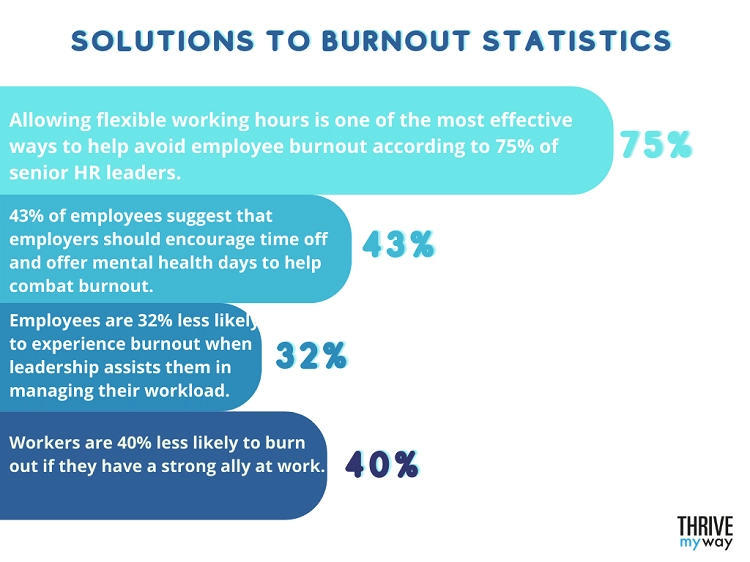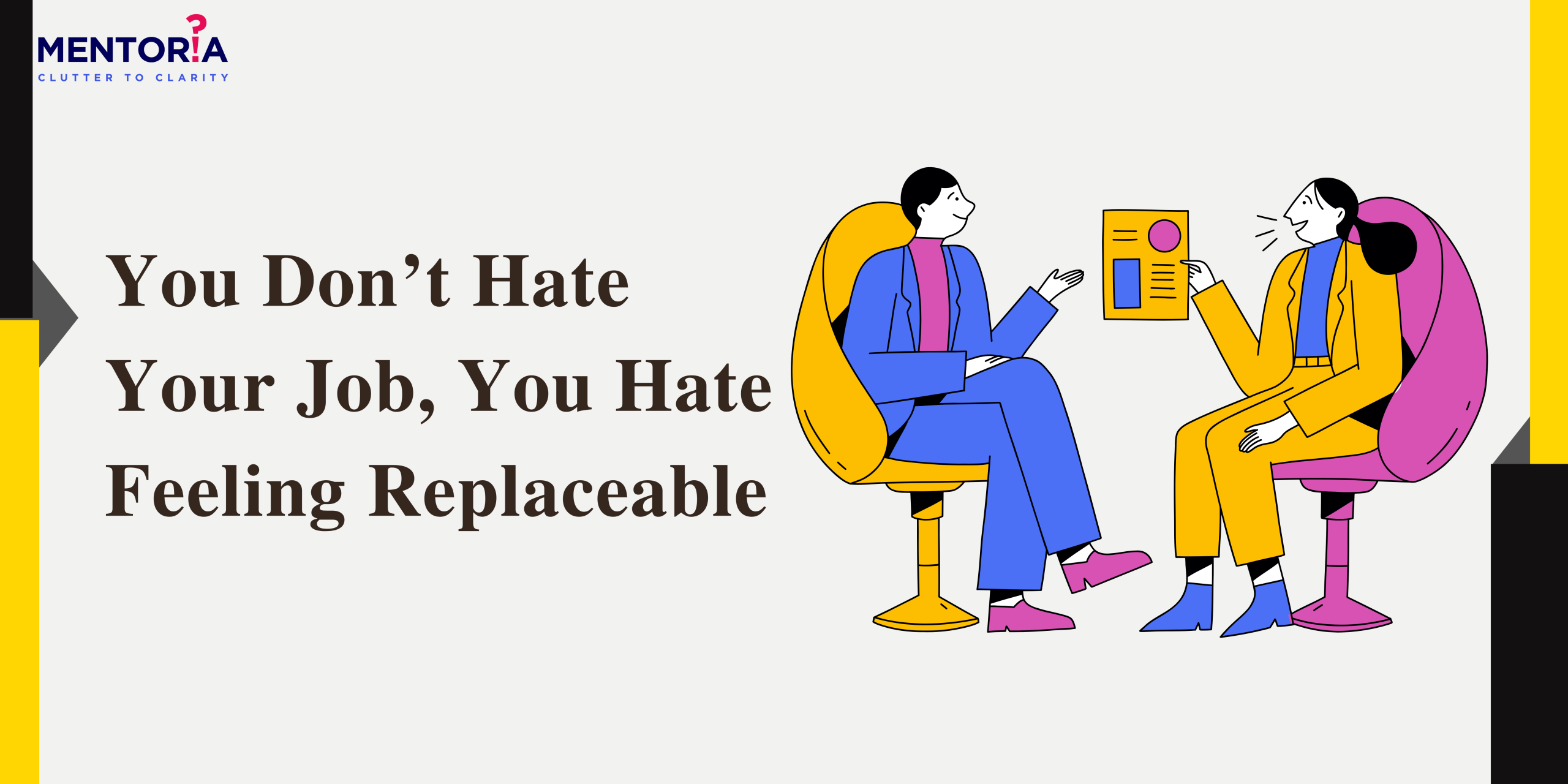Why is Everyone’s Swiping Left on Their Jobs in 2024

Are you tired of the fact that work fills up your life? Well, you are not alone. According to a recent survey by LinkedIn, nearly 88% of working professionals are currently looking to change jobs in 2024 mainly due to the toxic work environment. The increasing disconnection in terms of what people want and what companies offer compels them to rethink their careers, and burnout is at the crux of this mass exodus.
The Heavy Toll of Burnout
Burnout has been a hot topic for years but never quite as relevant as it is now. A recent joint report by the Economic Times states that 62% of Indian employees suffer from work-related stress and burnout, which is three times the global average. The recent shocking tragic death of a young Ernst & Young employee in Pune has highlighted how extreme workload and lack of proper rest can have fatal consequences. Despite laws and policies meant to ensure employees’ well-being, corporate culture often glorifies long hours as a sign of dedication and success. But the costs are higher than we realise, both in terms of health and productivity.
Why Are We All Looking for New Jobs?
Surprisingly, the LinkedIn report suggests that the job market is heating up with professionals looking for better deals. It’s not just about pay though that can be a factor. Most workers want more work-life balance and flexibility; they crave true mental health support. The irony? Companies that prioritise employee well-being, like flexible schedules and proper downtime, see higher productivity. Yet, so many workplaces fail to act on these findings.
So, What’s the Solution?
1. Set Boundaries
Solution: Create a day’s schedule. For example, make use of the Pomodoro Technique working for 25 minutes and then breaking for 5 minutes is a very effective system in maintaining momentum without burning out. One powerful yet little used skill is to know when to say no to additional work when you’re stretched as thin as the cheese on a really good pizza.
2. Prioritise Rest and Recovery
Many professionals, particularly women, get less than 7-10 hours of rest per day, which includes all forms of downtime, not just sleep. Lack of rest doesn’t just lead to burnout—it can also affect creativity, problem-solving skills, and even emotional intelligence, all crucial for career growth.
Solution: Use “micro-recovery” time at work. This is taking short breaks, standing away from your desk, with a few light stretches or some mindfulness exercise. Researchers from the American Psychological Association have shown that such small breaks at intervals of five minutes in every hour can recharge cognitive functioning and prevent burnout.
3. Use Technology to Your Advantage
Automation tools and artificial intelligence are no longer limited to tech firms. Professionals in every industry can save time on boring tasks to have more time to concentrate on more important work. Companies like Zapier and Trello offer free tools that automate tasks in your email, meeting, and project management to reduce workload.
Solution: Identify the tasks that consume the most amount of time in your day and research software that can automate them. For instance, there are tools like Grammarly that can automatically proofread your emails or Calendly schedules the meet without the back-and-forth game of emails.
4. Address Mental Health Proactively
With 62% of Indian employees experiencing burnout, companies are beginning to realise the importance of mental health. While many organisations offer mental health days, it’s important to advocate for regular mental wellness practices like therapy and counselling as part of a long-term solution.
Solution: Make mental health a part of your routine by scheduling therapy sessions, even when you’re not in crisis mode. Apps like BetterHelp and Wysa offer accessible counselling services, making it easier to talk to a professional without taking too much time off work. Implementing meditation or yoga as part of your daily routine has also been shown to reduce stress significantly.
Conclusion
Burnout is a growing issue, but it’s one that we can manage through small, consistent changes. By creating boundaries, prioritising rest, leveraging technology, discussing mental health, and advocating for better work-life balance, we can fight against burnout.
Want to take a step forward? Mentoria’s career counselling provides you with individualised guidance toward an ideal balance of ambition and well-being. Learn how you can ensure that whatever you end up doing will be an informed choice, how you can career climb upward, and still have life outside the job. Take charge of your career and well-being: don’t let burnout take you away.








